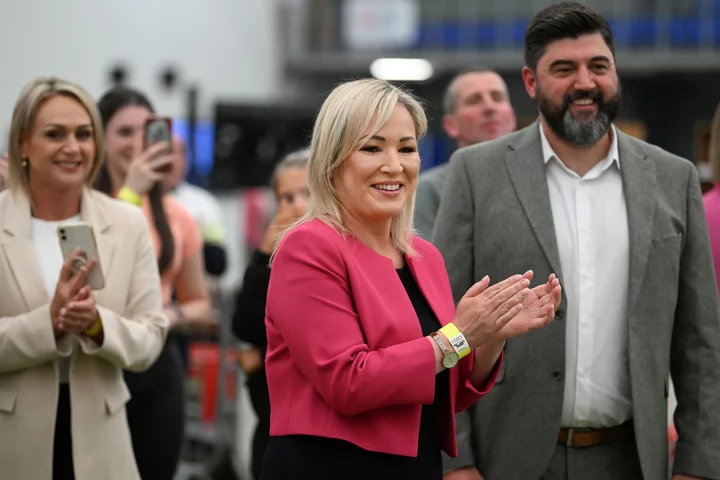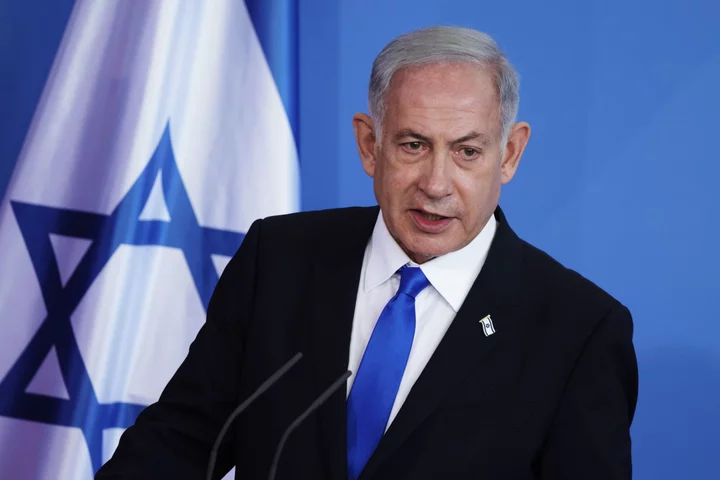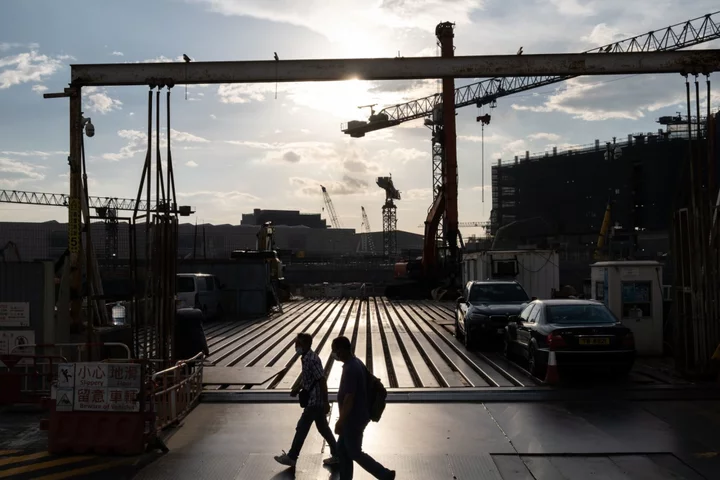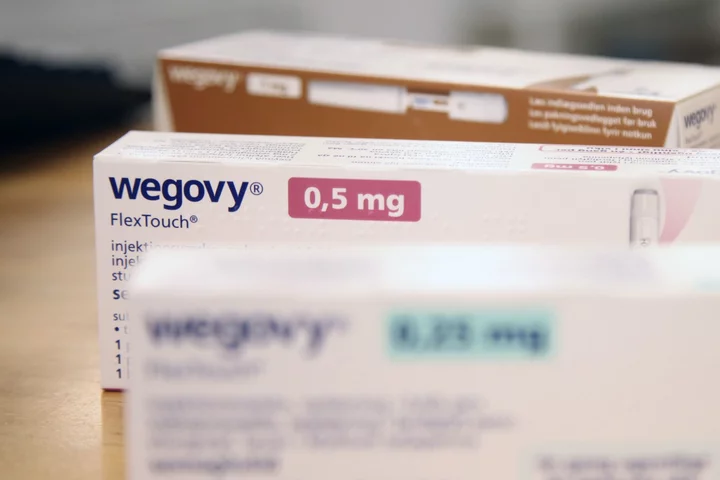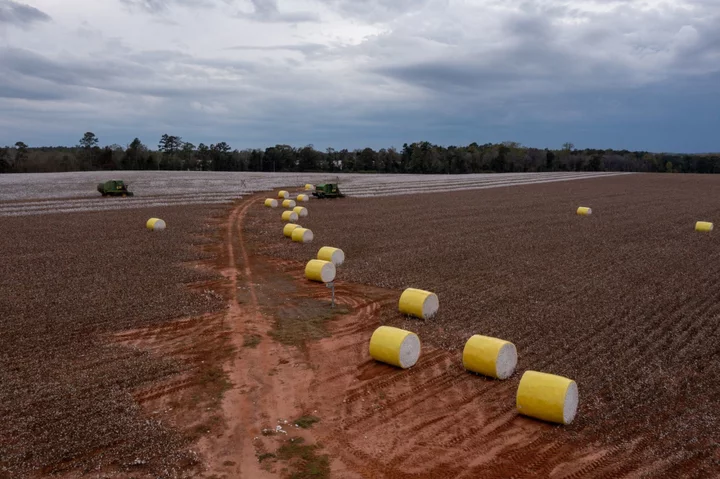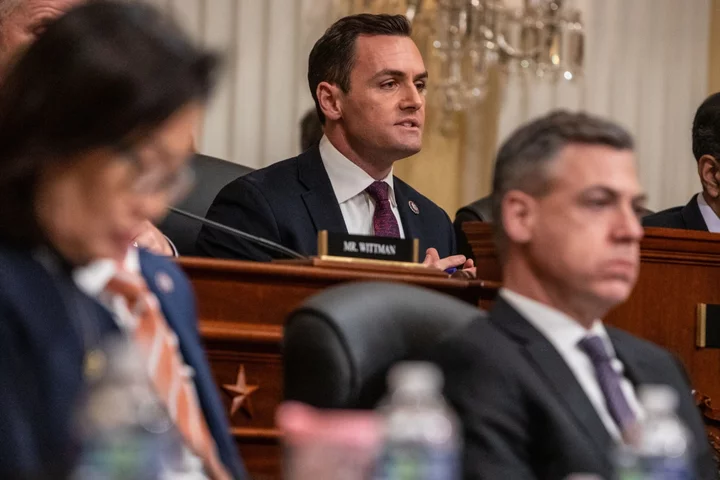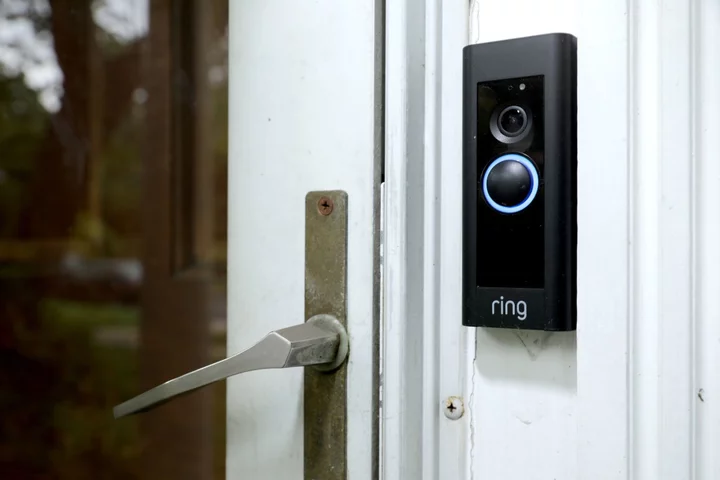Sinn Fein is on course to become the biggest party in Northern Ireland’s local government for the first time ever, a historic victory that will heap pressure on the Democratic Unionist Party to end its Brexit-linked boycott of the region’s power-sharing government.
With 416 out of a total 462 seats counted as of 4:15 p.m. on Saturday, the nationalist Sinn Fein had won 131 seats, according to the BBC. That’s 30 seats more than it previously had, and exceeds the DUP’s former total of 122 as the biggest party in local government. The success adds to Sinn Fein’s momentum, after it emerged last year as the biggest in the Stormont Assembly for the first time for a nationalist party in the region’s history.
The DUP’s tally, meanwhile, stands at 114 seats so far, gaining one seat. Sinn Fein attracted 31% of first preference votes while the DUP drew 23%, an 8% gain and 0.8% drop respectively from the 2019 local elections.
If Sinn Fein overtake the DUP “it would be absolutely huge,” said Katy Hayward, professor of political sociology at Queen’s University Belfast.
The result will strengthen Sinn Fein’s call to form a government with their nominee Michelle O’Neill as First Minister, while also intensifying pressure on the DUP to climb down from its boycott of the regional government.
The standoff, a protest against post-Brexit trading arrangements for Northern Ireland, has left Stormont with no functioning government since February 2022, hampering efforts to tackle a cost-of-living crisis.
The DUP’s stance has drawn criticism from global leaders, including US President Joe Biden, as it risks undermining the peace process, 25 years after the Good Friday Agreement mostly ended violence between nationalists and unionists.
This election “has become a proxy vote on the DUP’s boycott,” said Deirdre Heenan, professor of social policy at Ulster University. “It’s a referendum on the DUP’s stance, the DUP staying out of the government.”
While the DUP’s campaign has been to make “it all about the protocol,” Sinn Fein have “run a pretty positive electoral campaign,” Hayward said.
The biggest unionist party has refused to take its place in Northern Ireland’s power-sharing government to protest the arrangements agreed between the UK and European Union designed to avoid creating a hard border on the island of Ireland.
The DUP sees the deal as undermining Northern Ireland’s place in the UK because in terms of trade, the region kept one foot in the EU’s single market.
But the UK and EU have made clear negotiations are over, leaving the DUP little room to maneuver. Opponents also accuse the DUP of not wanting it to take its place in the government with a Sinn Fein first minister.
More broadly, nationalist electoral success points to a shifting of the political ground away from the unionist cause, especially after Catholics became the biggest religious group in Northern Ireland last year.
Sinn Fein — which wants to see a united Ireland — have run a “completely presidential campaign,” Heenan said. “This is not about local issues.”
The result will add momentum to Sinn Fein’s growing strength on both sides of the border. Already the largest party in Stormont, and the most popular party in the Republic of Ireland, this would be “a sweep across the boards,” Heenan added.
Northern Ireland’s Alliance Party, which identifies as neither nationalist nor unionist and has campaigned against the current political stalemate, also saw significant gains, adding 13 seats so far.
Even so, the Traditional Unionist Voice party, which like the DUP staunchly opposes the Brexit deal, attracted an additional 1.7% of first preference votes and gained 1 councillor, suggesting the DUP also faces pressure to hold its ground.
“I wouldn’t expect to see a very quick movement from the DUP,” Hayward said ahead of the results. The British government is likely to “move faster” with some kind of legislation on Northern Ireland’s place in the UK, she said, to try to persuade the DUP to back down.

